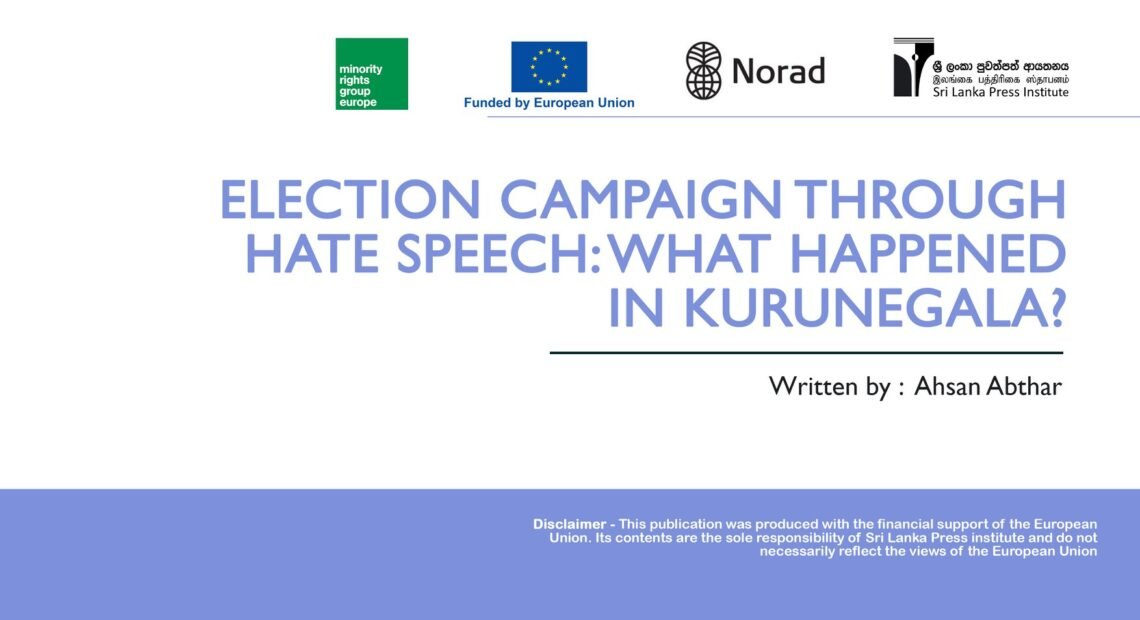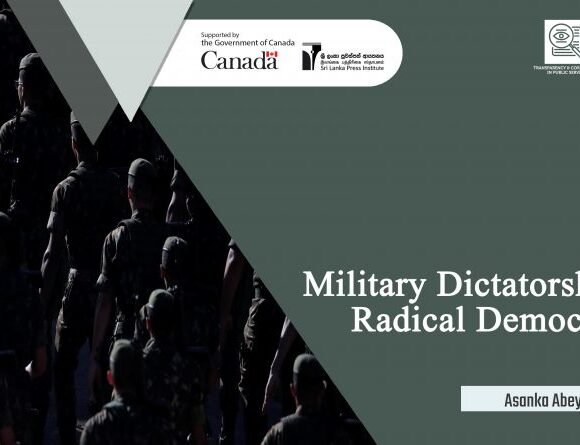Ahsan Afthar
Politicians usually garner votes by kneeling at the feet of the voters during election campaigns. But there have been reports of people being intimidated and forced to vote in disgusting ways at the recent general election.
The Center for Monitoring Election Violence has classified the public speech of Johnston Fernando, a candidate contesting on behalf of the Sri Lanka People’s Alliance in the Kurunegala district, as ‘hate speech’.
His campaign was aimed at intimidating the Muslim minority in the district for garnering votes.
Speaking at a campaign rally for the People’s Alliance in the presence of Prime Minister Mahinda Rajapakse on July 8, 2020 at a private hotel in Kurunegala, Johnston said, ‘If we hit, we will hit directly, we will not hit indirectly; the people of Kurunegala district know that very well. If they clash with us, he will not just let it go. He also said ‘My party should have 75 percent of the Muslim vote when it comes to counting down the ballots. Only then, as a district leader, I could talk about the problems of Muslims after the election is over. He has spoken this in a threatening manner but with a smile in his face.
Three days later, the Kurunegala District Muslim Youth Conference was held with the participation of the Prime Minister’s son and Member of Parliament Namal Rajapaksa. On this occasion, Johnston asked those present at the meeting attended by the Prime Minister on July 8 to raise their hands. He recalled his speech he had made three days earlier, that as many in the crowd had raised their hands and said, “Since more than half have participated, there is no need to talk about it.” This, too, is categorized as another threatening style of speech.
Speaking at the Kurunegala District Muslim Youth Conference, he spoke words of reconciliation and what he had said earlier. ‘Everybody attacks back if someone attacks! It is better to resist than to run away when someone comes to attack. That’s how I am. He also reiterated his views on the issue of counting ballots, a controversial issue, and asked for more support in voting for his party.
Johnston Fernando’s comments caused fear among the district’s Muslim. “There is a lot of support for the party here. It was scary to comment on the video of the PA. It was not shared with friends. Many news links about this were sent to me by friends on WhatsApp. They are publicly threatening to attack us after the victory if we do not vote,” said Mohamed Faris, 29.
The Kurunegala district was the worst hit by the unleashed violence against Muslims after the Easter Sunday attacks. About 457 Muslim families lost their properties in communal attacks in Hettipola, Bingiriya, Panduwasnuwara, and West Wariyapola in the Kurunegala district. According to Muslim Aid Sri Lanka, 147 houses, 132 Muslim-owned businesses, 29 Muslim mosques, 52 vehicles, and 2 public buildings were damaged. For these people, who are unable to recover from the scars of this violence, Johnston’s hatred, is an act of applying salt in the open wounds.
Commenting on the election-time hate speech, Manjula Gajanayake, National Coordinator of the Center for Monitoring Election Violence (CMEV), said: ‘Hate speech cannot be condoned. In the background of every hate speech, there is a division between human beings such as race, religion, party and gender, which is in favor of hate speakers,” he said. He further added that the first objective of those who spread hate speech is to incite people against the victims.
Commenting on the hate speech, Mohamed Faslan, a lecturer in the Department of Political Science and Public Policy at the University of Colombo, said, “Such hate speech is common during election periods. Johnston Fernando’s speech falls within the definition of hate speech because it poses a threat to a particular community. We have historically seen the Freedom Party takes the lead in making hate speeches. It’s the new form of the same; the PA is leading the way in hate speech in this election”.
Similarly, the Center for Monitoring Election Violence (CMEV) in a report on hate speech and ethnic division in the 2020 parliamentary elections has listed the Sri Lanka People’s Alliance as the party with the most hate speech. Out of 9 hate speech incidents recorded 4 were by members of the PA.
Commenting on the election-time hate speech, Prof. Ratnajeevan Hoole, a member of the Election Commission, said that the Election Commission’s response to the hate speech spread on Facebook was unofficial and at least there was no formal definition of what hate speech is. Solutions were being prepared, he said.
He also said the Election Commission had to enforce the United Nations Convention on Civil and Political Rights (ICCPR) law, as there’s no other law against hate speech, and we do not have professionally trained to report hate speech to the Election Commission anyway. Hoole also said that there was a shortage of experts in the English language to check hate speech spread on Facebook and that there were deficiencies in translating hate speeches that appear in Tamil.
Speeches that are racially hateful influence the voter turnout or turn out to be in high rejected votes. It is worth noting that Kurunegala is one of the districts with the highest number of rejected votes in this election.
Action can be taken against hate speech under Section 3 of the ICCPR Act and section 14 of the Evidence Ordinance of 1995. Suggestions have been made to amend the Penal Code and the Criminal Procedure Code in the past. The convict faces up to five years in prison and a fine of one million Sri Lankan rupees. But unfortunately, these could not be seen in action.
Sources:
Johnston Fernando’s Hate Speech :
https://www.facebook.com/muslimvoice.lk/videos/585281318790850/
Johnston Fernando’s Second Speech :
https://www.facebook.com/aluthparliment/videos/402236817404316/
A Report from Centre for Monitoring Election Violence (CMEV)
An Report from Center for Monitoring Election Violence (CMEV)
An Interview of Mr. Manjula Gajanayaka {National Co-Ordinator of Center for Monitoring Election Violence (CMEV)}
A Report from Muslim Aid Sri lanka
https://www.facebook.com/MadawalaNewsWeb/videos/1390441824478297/
An Interview with Mohamed Faslan [Lecture – Department of Political Science and Public Policy (University Of Colombo]
https://www.facebook.com/MadawalaNewsWeb/videos/1390441824478297/
An Interview with Professor Mr. Samuel Ratnajeewan Herbert Hoole (Member at Election Commission – Srilanka) Conducted Mr. Arun Arokkiyanadhar in Globe Tamil.
https://www.facebook.com/100007592353426/posts/2615911018671951/









